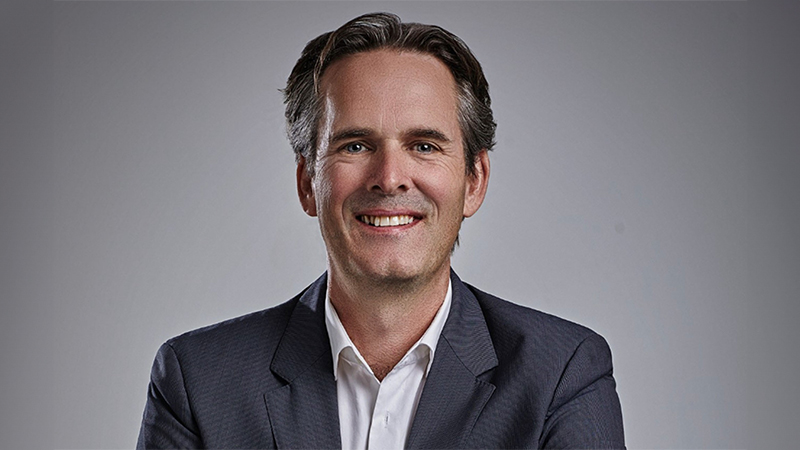‘Anonymised scoring’ is an intriguing phrase that crops up in the opening minutes of my interview with James Klempster, deputy head of multi-asset at Liontrust. It’s a process where members of the team individually rate asset classes ahead of their quarterly tactical asset allocation meeting.
Each asset class is given a score from one to five, with five being the most positive. This is done by looking beyond the immediate geopolitical and economic noise and focusing 12-18 months down the line.
Prior to joining Liontrust in February 2021, it was not something Klempster had come across before. “The purpose is to cast off the shackles anchoring you to previous decisions or recommendations.”
The 10-strong multi-asset team then uses their views, in conjunction with a whole suite of quantitative information, to debate and determine what is an appropriate overall score for each asset class. Those scores, in turn, inform changes to Liontrust’s portfolio and fund ranges.
How varied the views are depends on the asset class in question and where you are in the cycle, Klempster explains. “Sometimes you will find quite tight clustering, and other times you’ll find a big spread.”
He says it can be down to personal interpretation, which is why the anonymous scores only form part of the process.
The collaborative team approach was one of the factors that helped lure Klempster away from Momentum Global Investment Management, where he had worked for 14 years.
“I’d had a very good run at Momentum,” he says, “but the opportunity to join Liontrust is a call that’s too hard to resist. It’s an incredible business that’s very much on the front foot. I’ve known and respected a number of the people here, not least [head of multi-asset] John Husselbee, for a very long time.”
This familiarity also helped make his transition, one year into the pandemic, much easier. “The crucial emphasis is the team. We do want to have a team-based approach to managing money. We believe in diversity of viewpoint, that diversification is at the heart of what multi-asset investment requires. Logically, it makes sense to have a whole suite of different viewpoints and inputs into the process.”
Independent view
Seeking a variety of in-house views is one thing, but the Liontrust team takes it a step further and uses an independent consultant in order to challenge their thinking and conclusions, making sure they stand up to scrutiny.
“We don’t want to fall into the trap of groupthink and following the party line. I think that is an important check and balance that we have in the process,” Klempster says. The most recent tactical asset allocation meeting resulted in just two changes: Japanese equities and convertibles were downgraded from four to three.
‘Within convertibles, we are taking some profits after a strong spell of performance for the asset class, which we feel has potentially peaked for the cycle,’ the Tactical Asset Allocation (TAA) update Q4 2021 states.
It adds: ‘As for Japan, our conviction has fallen slightly, although recent political upheaval looks to be resolved with new prime minister Fumio Kishida in place. For now, we prefer to spend our equity risk in areas such as Europe and the UK.’
Nothing is rated five out of five; while, unsurprisingly, cash scores one. The overall score is four out of five.
Klempster says: “A year ago, we scored it five out of five as we sat in the foothills of the reflation trade out of the bottom. As markets have gone up, with the unwinding of all those Covid restrictions, we’ve tempered that back. We’re still positive on the overall environment.”
The Q4 TAA update was “fairly quiet”, Klempster says, but that was because the three months preceding the meeting had “pretty much been a continuation of what happened during the summer”, which saw a couple of changes to the TAA.
The next step in the process is where an element of asset allocation artistry comes in – namely, portfolio construction.
Applying those scrutinised views and scores to the funds and portfolios is a relatively simple task in some cases, while others require more tweaking. This can be for mandate reasons or because they are passive or blended strategies, Klempster says.
“You’ve got to find that balance between wanting to get your views out into the funds of the portfolios but, at the same time, not wanting to over-trade and knee-jerk. It’s a case of implementing it in a sensitive way.”
Parallel lines
Running in parallel to the asset allocation discussions is manager selection, which brings Klempster back to the importance of the team: “There is a lot going on behind the scenes. A huge amount of work.”
Given the volume of factors at play, tuning out the immediate noise and basing asset allocation views on what the environment is expected to look like 12-18 months from now is no mean feat.
At the time of the interview, at the end of January, we had rising tensions between the west and Russia, Covid-19, questions about whether the UK prime minister will fall on his sword and flatlining approval ratings for US president Joe Biden. And we can’t overlook the topic that has dominated most financial services conversations in recent months: inflation.
Klempster says with a wry chuckle that “we are really stretching the definition of transitory at this point”.
“Consensus over the short term is that inflation will remain a bit higher than we are used to, but over the medium to long term it will revert back to some sort of normal level. Whether that begins with a two or a three is the debate we’re seeing most people have.”
Inflation that’s sitting at 2-3% is a “reasonably kind environment for consumers and markets, obviously apart from the fixed income sector, which might find it a bit more challenging”.
“The core theme we are driving in the portfolios is a continuation of the reflation trade, which can trace it origins back to 9 November 2020 when we had the first Pfizer vaccine trial.”
According to Klempster, the opening up of economies and growing numbers of doubly or triply vaccinated people creates a different dynamic. “It speaks to interest rates drifting up, use of services going up, activity becoming less remote. For us, there are three main directions that came out of that.
“The first is that, in a reflationary environment, developed markets in the rest of the world should do better than the US. That’s a view that we have expressed for a year and a half. We think that value should be benefitting more than growth stocks. They, generally, should be better positioned to weather slightly elevated prevailing interest rates and a slightly steeper yield curve.
“And, finally, small caps should do better than large caps. More people are out and about, consuming more, and when domestic economies do well you tend to find that small cap stocks do too. Those are the three factors that we consider when we think of the reflation trade and that is how we are positioned in our funds and portfolios.”
But it’s not a case of making “wholesale binary bets”, Klempster says. “It’s about emphasising small cap over large cap, or value over growth.”
Under a cloud
He describes China as “a concern”, adding that the troubled real estate giant Evergrande “really spooked investors last year”.
“Generally, it is still growing relatively well, which speaks to why we want to stay diversified and avoid having any one particular dominating force in our portfolios.
“Likewise, when it comes to geopolitics, it’s difficult to predict what the impacts will be. Even if you foresee the risk, it doesn’t always necessarily translate that you will get a certain response from asset classes.”
When it comes to the UK, Klempster describes it as “having been under a cloud since the Brexit decision in 2016”.
“It doesn’t really seem to have captured the imagination of investors outside the UK for that period. You can point to its sectoral composition and say that it’s antiquated, and there are a lot of markets here that don’t stack up well from an ESG perspective and that’s why it’s unloved.
“But ultimately, all that has led to the UK being extremely cheap from a value perspective. As investors, we appreciate all of the various views and take them into consideration. But it is, by far, the cheapest major stock market.
“It’s something we are fairly constructive on, overall. We think there are good opportunities in the UK. On a stock-by-stock basis, you can probably justify some of those valuations, but if you look at the index as a whole it seems pretty attractively priced.
“Investing on a diversified basis and using different managers wherever you can, we think it’s a decent home for capital.”
Place your bets
Rather than take a fixed view on, for example, geopolitical developments; the Liontrust multi-asset team strives to avoid being overly sensitive to any one particular factor, which feeds nicely into the topic of risk.
Away from inflation, politics and the broader macro-economic environment, risk has been another key topic of conversation across the industry.
One philosophy that has filtered down from head of multi-asset Husselbee is about ‘winning in the long term by not losing’.
“We want to minimise any sensitivity to the downside where we can, because it makes the journey better for investors. That approach starts with the suitability discussions and continues into the strategic asset allocation,” Klempster says.
Liontrust funds and portfolios are “built deliberately to try and target a particular risk level and sit in a particular risk band”.
“From there, when you look at moving a fund or portfolio tactically, the first thought is ‘will it remain suitable?’. Then it’s about minimising sensitivity to the downside while keeping the right level of risk.”
Having scored the overall outlook at four out of five, Klempster and the team are heading into 2022 with optimism.
“We’re constructive on equities, we think that the global economy is still doing well, there is still plenty of activity. The corporate sector seems to be in pretty good shape. Private individuals have still got quite a lot of savings accumulated from throughout the current crisis, which speaks to the prospects for inflation.
“The counterbalance to that is the inflation argument. Overall, we think we’re still in the growth phase of the cycle but more mid-cycle rather that the early accelerative period. We still believe in holding equities, but are aware of the fact that these double digit returns don’t happen every year.”
He saw the past 12 months have been “relatively benign, despite a number of surprises being thrown at the market”.
He adds: “But we need to be cognisant of the fact that the rapidity of the market recovery, up from the bottom on 23 March 2020, is unusual.
“To expect that to continue unabashed is probably hoping for too much.”











